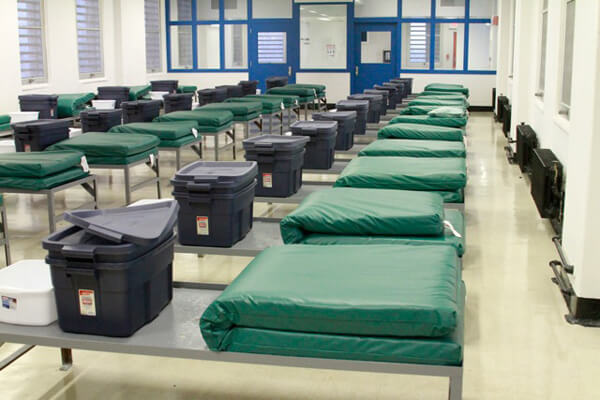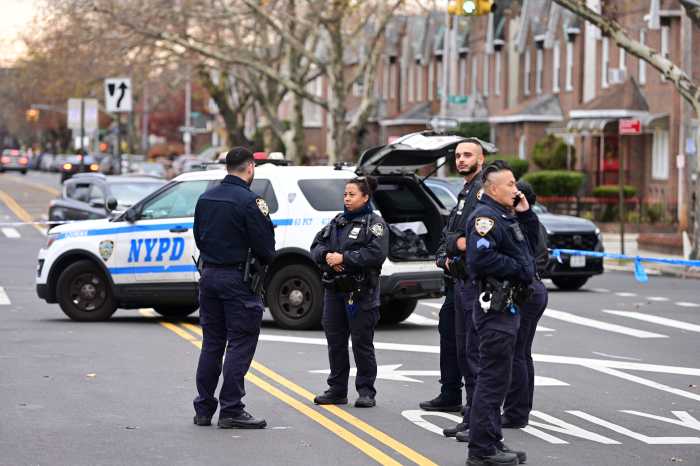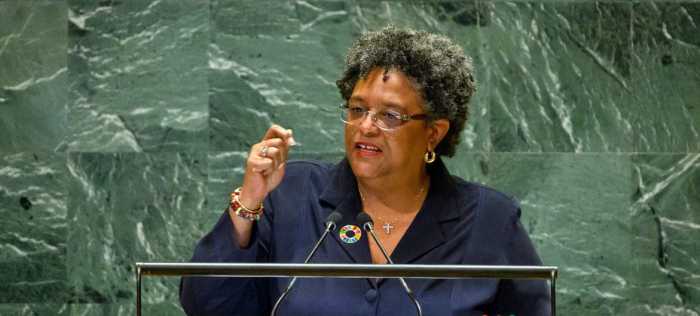One year after Layleen Xtravaganza Cubilette-Polanco died alone in her restrictive housing cell at Rikers Island, Mayor Bill de Blasio on June 29 outlined a path toward ending the use of solitary confinement and announced a more immediate directive banning it among those with certain health conditions.
De Blasio and Board of Correction (BOC) Chair Jennifer Jones Austin unveiled the creation of a working group geared toward ending solitary, or “punitive segregation,” that will be spearheaded by the board’s vice chair, Stanley Richards, and include Department of Correction (DOC) Commissioner Cynthia Brann as well as DeAnna Hoskins, president and CEO of Just Leadership USA, a group that lobbied to close Rikers and is committed to a dramatic reduction in incarceration rates nationally.
The individuals who are excluded from solitary under the new policy include those who have diabetes and serious mental illness, as well as anyone who takes blood thinners, asthma medication, or anti-epileptic medication for seizures. Individuals who have undergone organ transplants and those who have been diagnosed with heart disease, kidney disease, or lung disease, among other conditions, are also excluded.

“From closing Rikers Island to banning punitive segregation for people under the age of 22, we have reoriented our correction system to value human life and rehabilitation,” de Blasio said in a written statement. “Now with Jennifer at the helm of the board and Stanley leading the working group, we will chart the course forward with the board to ban punitive segregation altogether, making good on our commitment to creating jails that are fundamentally smaller, safer, and fairer.”
In a written statement, Austin described punitive segregation as “an inhumane practice resulting in debilitating trauma” that individuals often endure for the remainder of their lives.
She said, “City plans to overhaul our jail system, inclusive of reducing incarceration, closing Rikers Island, and locating detention centers in four boroughs must also incorporate the ending of solitary confinement and developing alternative means of accountability with a focus on safety for both staff and detained persons, mental health, effective and robust programming and education, and investment in training and the well-being of employees.”
The administration also announced that Benny Boscio, the incoming president of the Correction Officers’ Benevolent Association (COBA), was invited to join the working group, which the city says “will prioritize safety for both officers and detained persons.” Boscio is taking over the leadership role for that union after former COBA president Elias Husamudeen was voted out by members, according to union election results that were announced June 27. As the discussion over banning solitary confinement heated up last year, COBA opposed the effort to do away with the practice. It is not clear where Boscio stands on the issue.
The administration’s announcement came in the face of growing pressure on both the city and the state to ban solitary confinement due to a myriad of factors, including the psychological and dehumanizing effects that the practice inflicts on incarcerated individuals. The circumstances surrounding the death of Polanco, a transgender woman who died due to seizures caused by epilepsy, sparked urgent calls for action and led to a DOC report outlining the wrongdoings of officers who were responsible for her well-being. On June 26, de Blasio suspended nearly a dozen and a half DOC officials involved in her case.
City leaders responded to the June 29 directive on solitary confinement with a renewed sense of commitment to pushing for the comprehensive banning of the practice.
“As I have said many times before, we need to end solitary confinement in the city and ultimately the State of New York, for Layleen Polanco and Nicholas Feliciano, for Kalief Browder, and for so many others who have been subject to this torture,” Public Advocate Jumaane Williams said in a written statement. “Solitary confinement causes deep and permanent psychological, physical, and social harm, and the mayor’s working group, which has been convened too late but is welcome now, must move quickly to develop a plan that the administration can immediately enact.”
Out gay City Council Speaker Corey Johnson said in a tweet that he was “glad to hear” about the working group to end the practice, calling it “an important first step,” and he welcomed the restrictions on solitary for folks with certain medical conditions.
“This group must act quickly to implement the #HALTSolitary blueprint ASAP & NYS should too,” Johnson added, referring to the “Humane Alternatives to Long-Term Solitary Confinement” Act in the State Legislature.
To sign up for the Gay City News email newsletter, visit gaycitynews.com/newsletter.

















